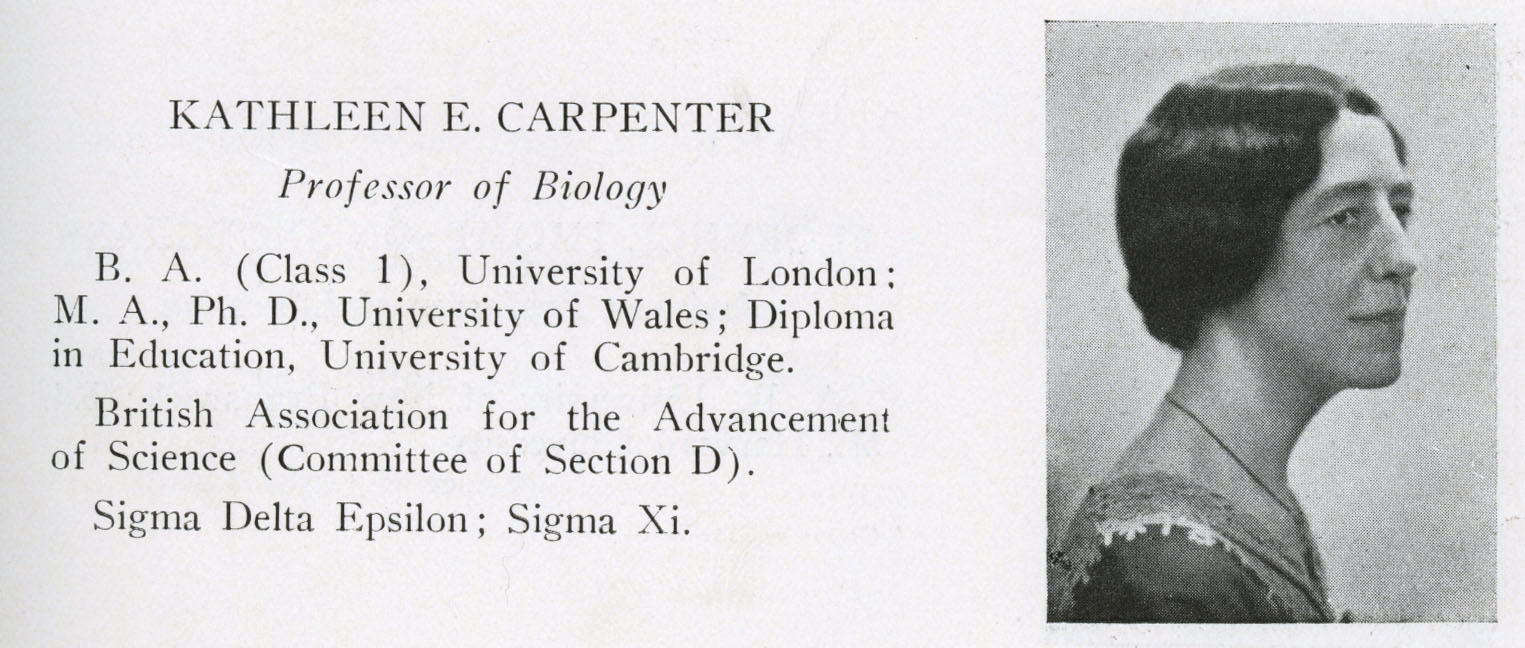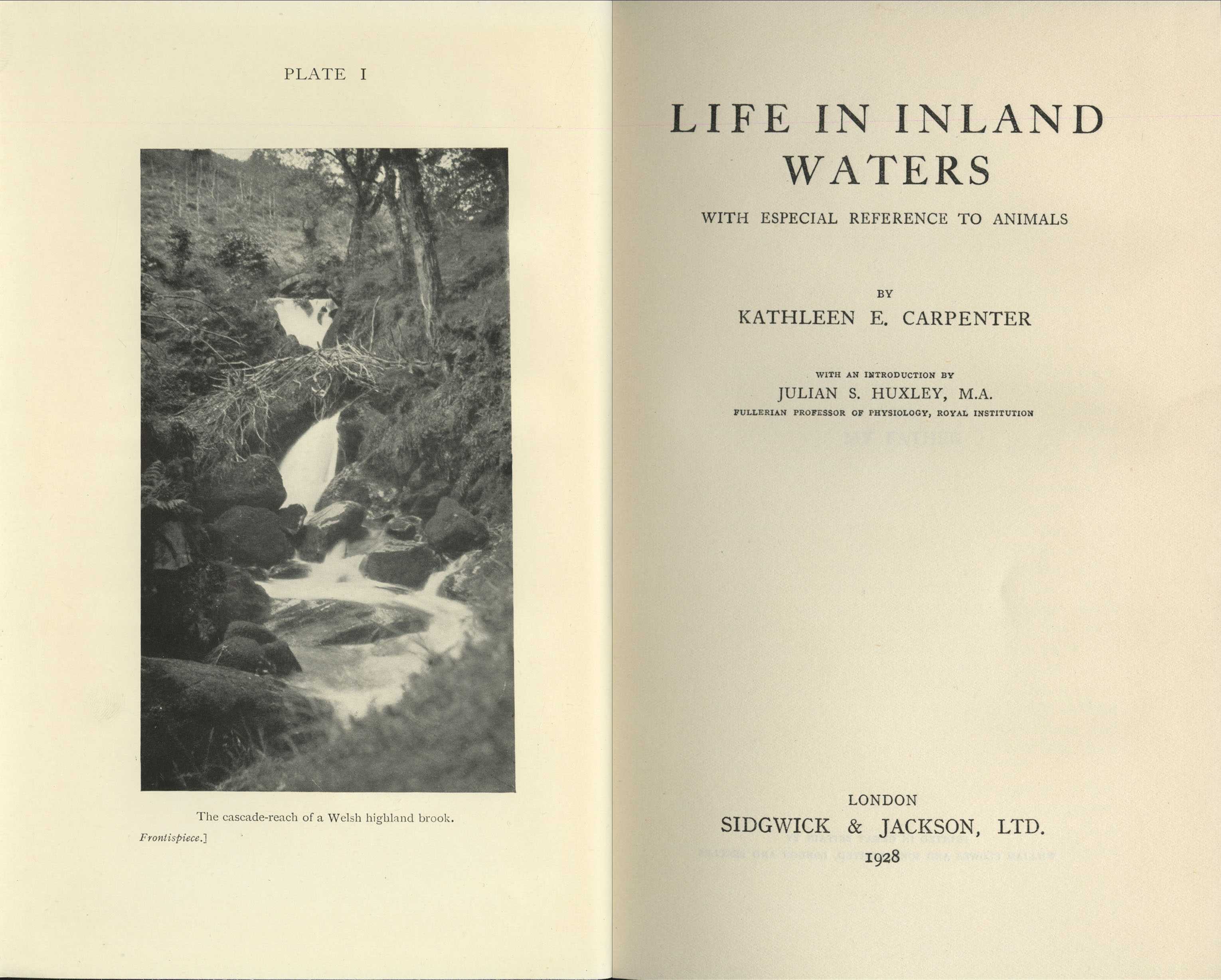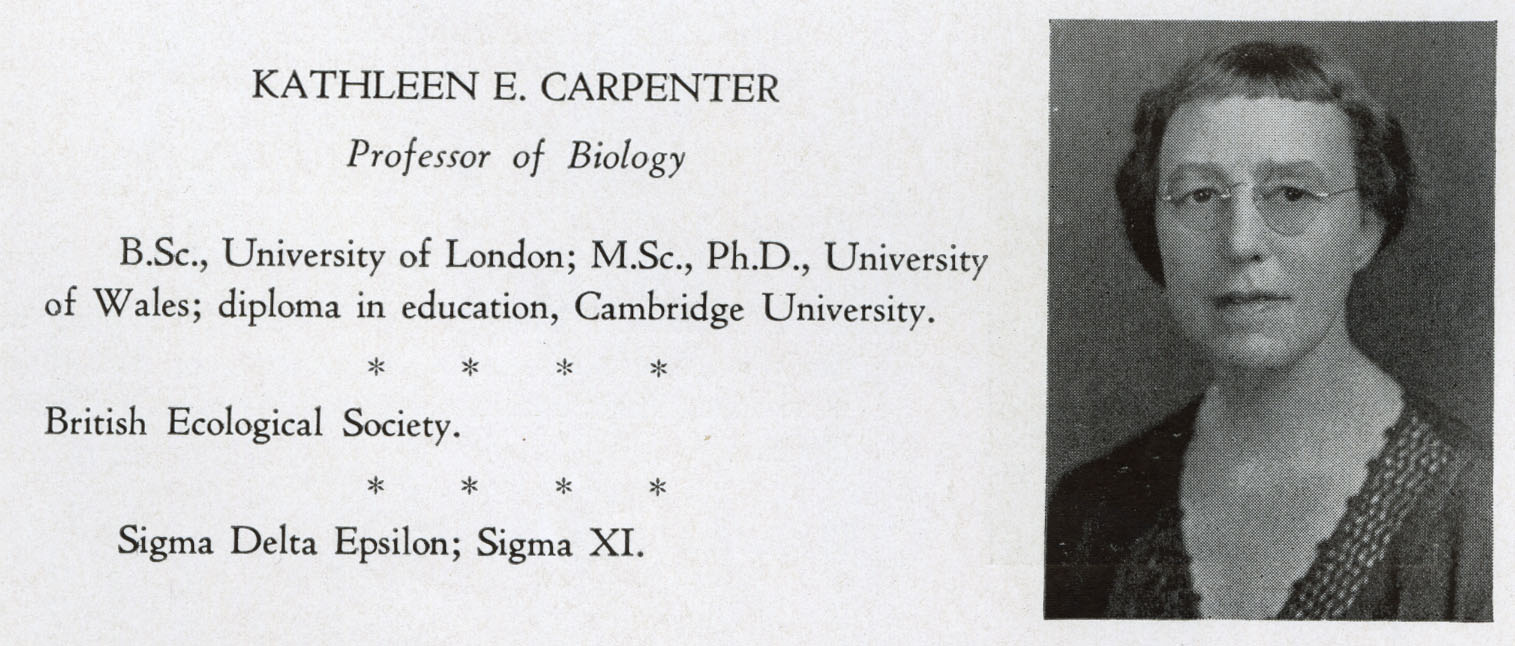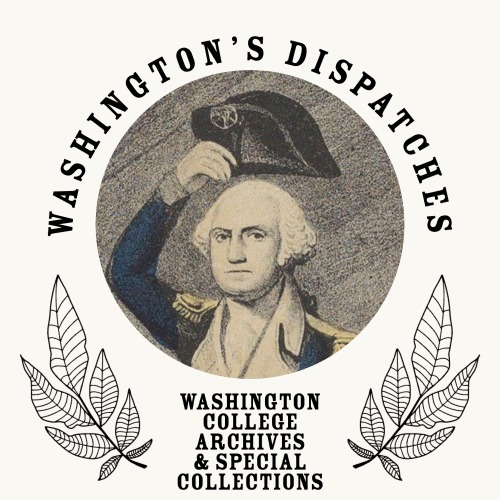Kathleen Carpenter: Mother of Freshwater Ecology

Washington College’s excellence in Environmental Science has deep roots. It is possible that the local environment attracted Dr. Kathleen E. Carpenter, sometimes called the Mother of Freshwater Ecology, to the Eastern Shore and Washington College.
Dr. Carpenter served as a professor of Biology from 1931-1936. Born in 1891 in Lincolnshire England, Kathleen studied at The University of London, earned her doctorate at the progressive University College of Wales Aberystwyth, and began her research looking at the effects of long-term mining on the water and ecology of the area. She came to the United States in the 1920s as a researcher at the University of Illinois at Urbana-Champaign, Radcliffe College, and McGill University. Carpenter came to Washington College just after the publication of her 1928 textbook, Life in Inland Waters with Especial Reference to Animals for Julian Huxley's series, a copy of which is in our Rare Book Collection. It was one of the first textbooks on freshwater biology written in Britain. A contemporary of Emmeline Moore and Rachael Carson, Kathleen Carpenter was a pioneer in her field and is starting to gain the recognition she deserves.

 Sadly, her time here at Washington College is not well documented and she seemed to
have been plagued by some illness while she was here. But she did find time to engage
with the students through the Honor Society and with her sorority Gamma Sigma. Student
Robert Shaull, class of 1935, even dedicated his poem “To an Amoeba,” published in
the 1934 Elm, to her. Dr. Carpenter returned to England to continue her research and
lectured at the University of Liverpool. Kathleen Carpenter died in 1970 but left
a lasting legacy in the field of biology. The passion with which she conducted her
research has resonated with so many that have come after her.
Sadly, her time here at Washington College is not well documented and she seemed to
have been plagued by some illness while she was here. But she did find time to engage
with the students through the Honor Society and with her sorority Gamma Sigma. Student
Robert Shaull, class of 1935, even dedicated his poem “To an Amoeba,” published in
the 1934 Elm, to her. Dr. Carpenter returned to England to continue her research and
lectured at the University of Liverpool. Kathleen Carpenter died in 1970 but left
a lasting legacy in the field of biology. The passion with which she conducted her
research has resonated with so many that have come after her.

